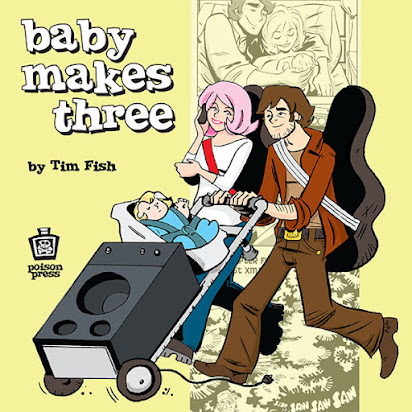"Inspiration is for amateurs. The rest of us just show up and get to work. If you wait around for the clouds to part and a bolt of lightening to strike you in the brain, you are not going to make an awful lot of work. All the best ideas come out of the process; they come out of the work itself.”
It's how I've lived and breathed my work in comics. Just keep working. Page after page. Almost nothing scrapped or revisited. Learn by doing. Though there have been some embarrassing results when I look back at early work, for the most part, I think my diligence and perseverance paid off. Each project better than the last.
In comics, I've focused more on my draftsmanship, and I can easily operate by showing up and getting to work. Inking, no problem to shut my mind off, listen to music or British comedy panel shows while I get the page done. Penciling for me requires silence, but still, I usually have no difficulty sitting down and visualizing a panel, page, or spread layout, compose in my mind, and draw. Though it never looks as good on paper as it does in my imagination, my best is my best.
Looking back at the quote, I might want to differentiate between
inspiration and being inspired to work on a project. The latter is
always more fun!--not being able to fall asleep because you're thinking
of a project. springing out of bed in the morning to work on it, eager
for the day job day to end to get back to the project.
Writing had been where I probably had been letting inspiration strike. And, given how long it takes to draw a story, I could afford to wait. Entering graduate school, inspiration wasn't an option, and good or bad, I've kept writing.
Lately, I've been worried that I've still needed inspiration, with a few challenging writing projects at my door I've been delaying, postponing, and also procrastinating. But, huzzah, a breakthrough! Though I'd been ignoring the two projects, it was always due to a higher priority, often with deadlines in the latter half of 2021: thesis proposal, grant application, my final graduate course work, a short story for Image.
Turns out I didn't need inspiration, or to be inspired, I simply needed time! Without other work and projects with deadlines looming, I was able to produce respectable drafts of two projects that had taken the position of dead weight. Though my lack of progress had been nagging at me, creating an unsavory appeal for them, once it was their turn, I could simply get to work.
The first was writing the pilot episode of Baby Makes Three as a radio/podcast play (you can read the OGN via comiXology). I'd had a few false starts... it was difficult to divorce myself from visual writing. The plan so far has been that my singer/songwriter friend Thom will write the music and songs.
The second was the third vignette of my Sandwich Shop at 9th and Pine series. The first vignette was published in the peer review journal Clamantis (I'll blog about it soon), the second vignette has been penciled, inked, lettered, awaiting colors, and the third vignette was spinning wheels in the mud. But here, too, I was able to produce a good first draft.
Progress on these two projects has been a huge weight off my shoulders--knowing that now for writng too, I don't need inspiration, or to be inspired. Still lots of room for improvement, of course... so please excuse me while I get back to work.



